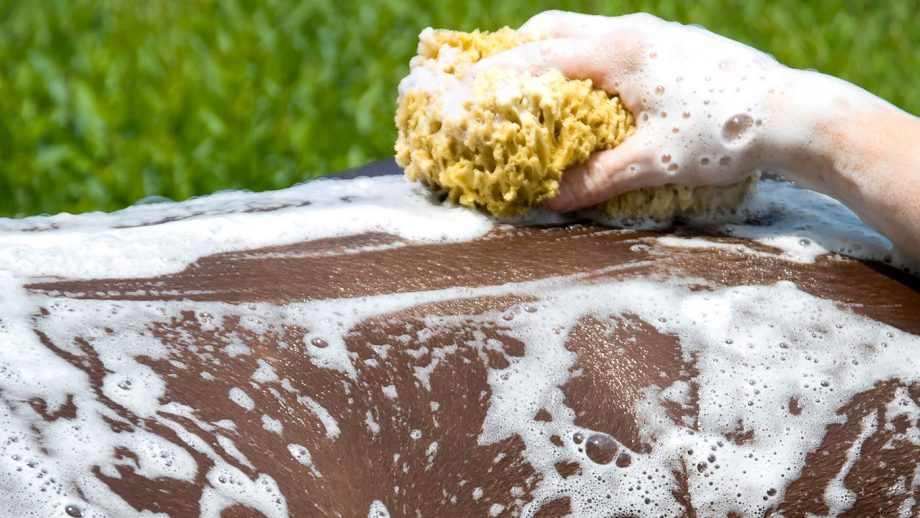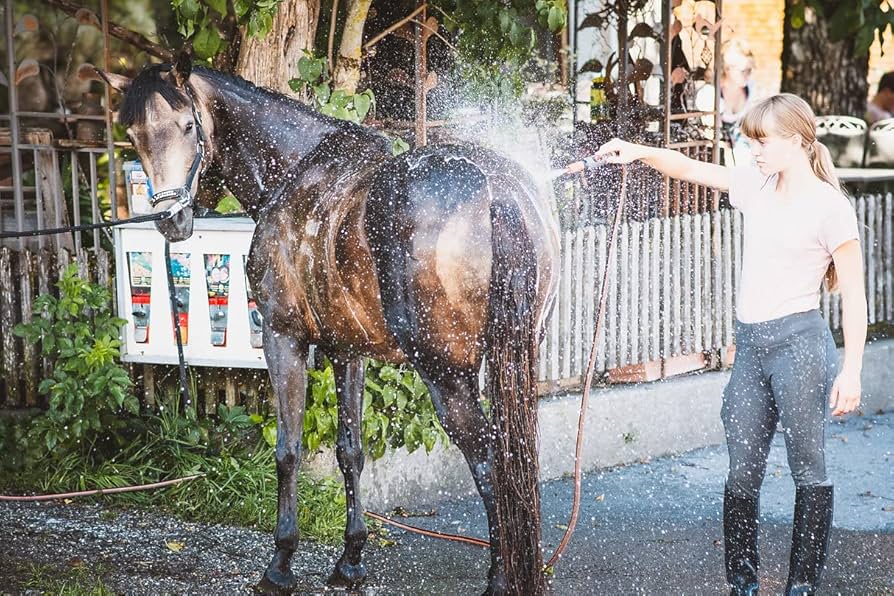Horse enthusiasts often question whether using horse shampoo can lead to dryness. Can horse shampoo cause dryness? This is a common concern, especially among those who prioritize the health and well-being of their equine companions. To answer this question, we will delve into the components of horse shampoo and examine their effects on both horses and humans.

Understanding Horse Shampoo Ingredients
Horse shampoo is specially formulated to cater to the unique needs of a horse’s coat and skin. It typically contains a blend of natural oils, proteins, and various cleansing agents that not only clean but also nourish the horse’s mane and tail. However, these ingredients might react differently on human skin, potentially leading to dryness.
Common Ingredients in Horse Shampoo
Some common ingredients found in horse shampoo include:
- Keratin: A protein that helps strengthen hair.
- Lanolin: A natural oil that moisturizes the hair and skin.
- Detergents: Cleansing agents that remove dirt and grease.
While these ingredients are beneficial for horses, they might not be suitable for human hair, as the concentration and formulation differ.
How Horse Shampoo Works
Horse shampoo is designed to address the dirt, sweat, and oils that accumulate on a horse’s coat during daily activities. The shampoo effectively cleanses without stripping away essential oils, ensuring that the horse’s coat remains healthy and shiny. If used on humans, the strong cleansing agents in horse shampoo could potentially lead to dryness, as human scalps have different oil production levels.
Why People Use Horse Shampoo on Hair
There is a growing trend of humans using horse shampoo, particularly for its purported benefits like increased hair strength and shine. However, it’s important to note that what works for horses might not work the same way for humans. If you’re considering using horse shampoo on your hair, be mindful of the potential for dryness and irritation.
Potential Risks of Using Horse Shampoo
While horse shampoo is safe for equine use, humans might experience some side effects. These include:
- Dryness: The strong detergents can strip natural oils from the scalp.
- Irritation: Sensitive skin might react to the formulation.
- Allergic Reactions: Some ingredients could trigger allergies.
To learn more about how to properly store horse shampoo and minimize risks, visit storing horse shampoo.
Precautions When Using Horse Shampoo
To prevent dryness and other side effects, consider the following precautions:
- Conduct a patch test before full use.
- Mix with regular shampoo to dilute strength.
- Use a conditioner afterward to retain moisture.
For proper shampooing techniques, check out proper techniques.
Best Practices for Equestrian Care
Maintaining your horse’s coat involves more than just using the right shampoo. Regular grooming, proper nutrition, and adequate hydration are also crucial for a healthy and shiny coat. For tips on avoiding grooming mistakes, visit grooming mistakes.
Alternatives to Horse Shampoo
If you’re concerned about dryness, consider using alternatives such as:
- Specialized equine shampoos designed for sensitive skin.
- Moisturizing shampoos with natural oils.
- Eco-friendly options that are gentle on the skin.
For more information on eco-friendly options, you can check the article on eco-friendly horse shampoos.

FAQs
Is horse shampoo recommended for daily use?
While horse shampoo can be used regularly on horses, it’s not recommended for daily use on humans due to its strong cleansing properties that could lead to dryness.
Can horse shampoo be used on all horse breeds?
Yes, horse shampoo is generally safe for all horse breeds, but it’s always best to choose a product that caters to your horse’s specific skin and coat needs.
Are there any side effects of using horse shampoo on humans?
Potential side effects include dryness, irritation, and allergic reactions. It’s important to conduct a patch test and consult with a dermatologist if concerns arise.
In conclusion, while horse shampoo is beneficial for equine care, it may not be the best choice for humans due to the potential for dryness and irritation. It’s important to weigh the pros and cons and consider alternatives tailored to human hair care. For further exploration on this topic, visit the Royal Horse website.
This article contains affiliate links. We may earn a commission at no extra cost to you.
